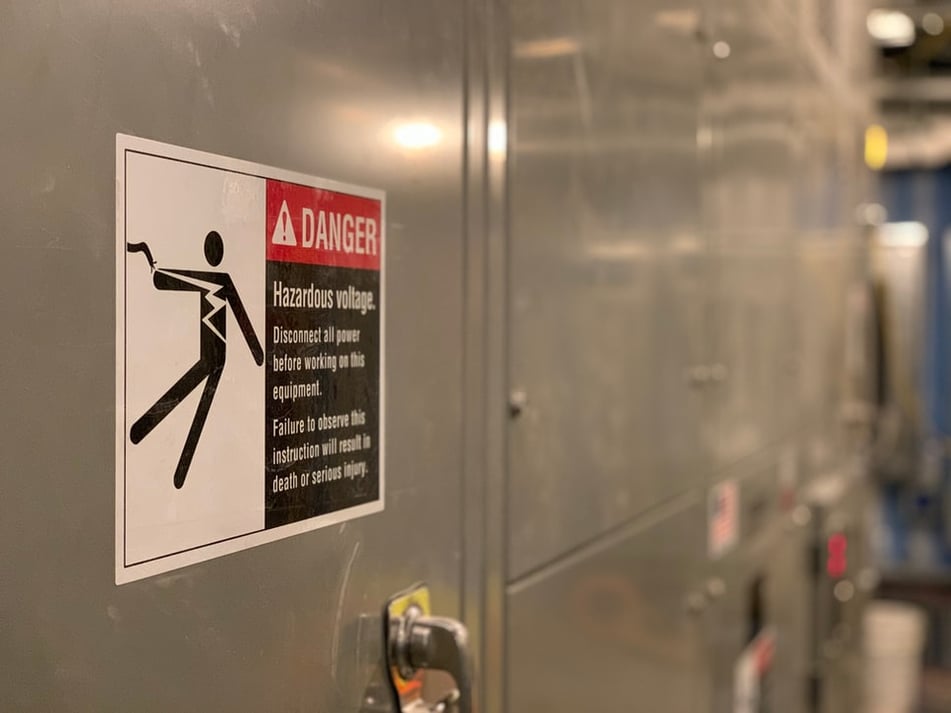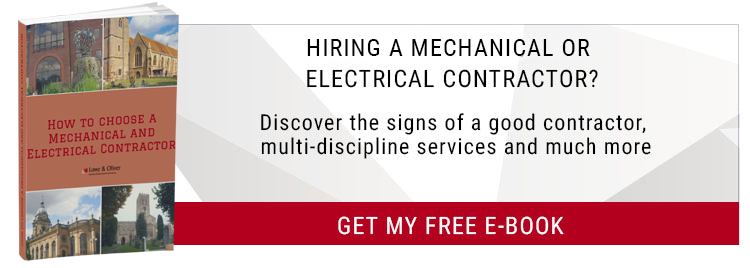
As a company responsible for electrical and mechanical works on some of the UK’s most prestigious historic houses, public buildings, and industrial and commercial properties, Lowe & Oliver has to comply with a large number of Health and Safety and Electrical Regulations at Work (codes of practice), to ensure the safe installation, operation and maintenance of electrical supply and appliances. The following is an overview of four of the main areas of accountability.
1) Electrical Risk Assessment
For the business owner, alongside health and safety inspections, a thorough assessment of your business’s electrical systems should be undertaken by a qualified electrician. While the volume of regulations, appendices and BS numbers can be mind-boggling to the uninitiated, a correctly organised assessment is easy to put into place and execute. A comprehensive log of all electrical inspections, findings, maintenance, and any remedial work undertaken, should be kept.
2) Fit for Purpose
Any machinery hard wired into the system should be fitted with an emergency stop button or isolator switch. Circuit breakers, fuses and power breakers should be correctly rated, boxes securely closed and if possible, locked. Portable appliances and extension cables should have waterproof plugs and sockets fitted, if they are to be used in areas of damp or open to the elements.
3) Operational Risks to Employees
Although your electrical installation, machinery and appliances may be sound, they can still pose a threat to employees. Injuries such as electric shock or burns can be caused by using the wrong type of equipment in a given situation – due to faulty connections, poorly earthed equipment, arcing and static electricity. Anyone having to use an electrical power source to carry out workplace tasks should be fully conversant with both the machines they operate and the power source that drives it. They should also be supplied with any personal protection equipment needed to operate the machinery.
4) Electrical Maintenance
With the mass of paperwork governing electrical safety at work, one would think an accident involving electricity would be a rare occurrence, yet unfortunately the opposite is true. In almost every incident, poor or non-existent maintenance of the hard wiring or appliances is to blame. To minimise the risk of injury, it is recommended that a full hard-wire inspection is carried out at least every three years.
Portable appliances and equipment should be subject to a visual inspection by employees every time they are used, and serviced every three to twelve months, depending on frequency of use. Appliance safety labels stuck on the equipment notifies users of the last service.
At Lowe & Oliver, we go the extra mile to help our clients keep within the law regarding electrical regulations in the workplace. All work is carried out by our highly qualified electrical engineers to approved NICEIC practises. If you would like more information on assessing the safety of your electrical systems, please chat to one of our engineers or download our free guide – The Commercial Electrical Testing Guide.



